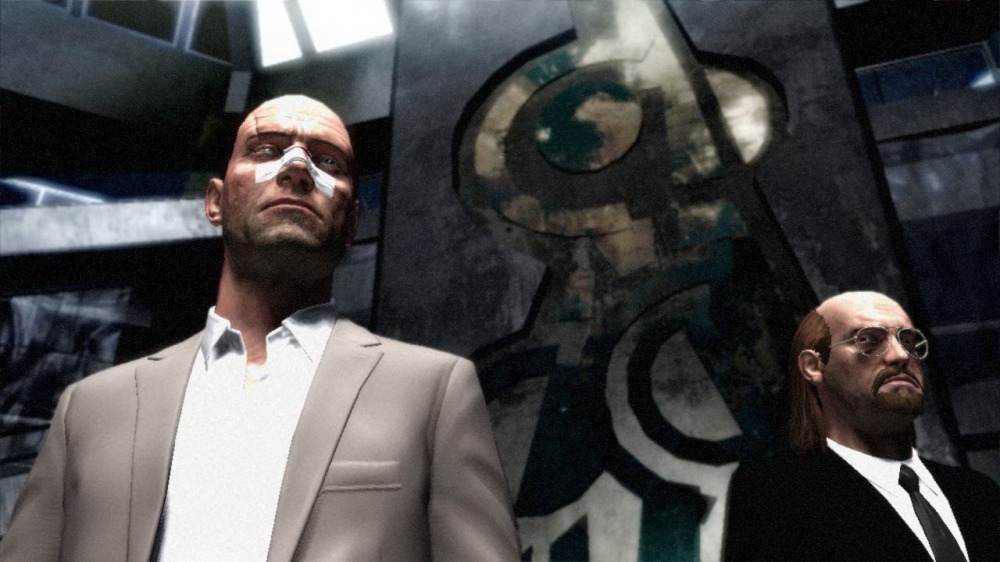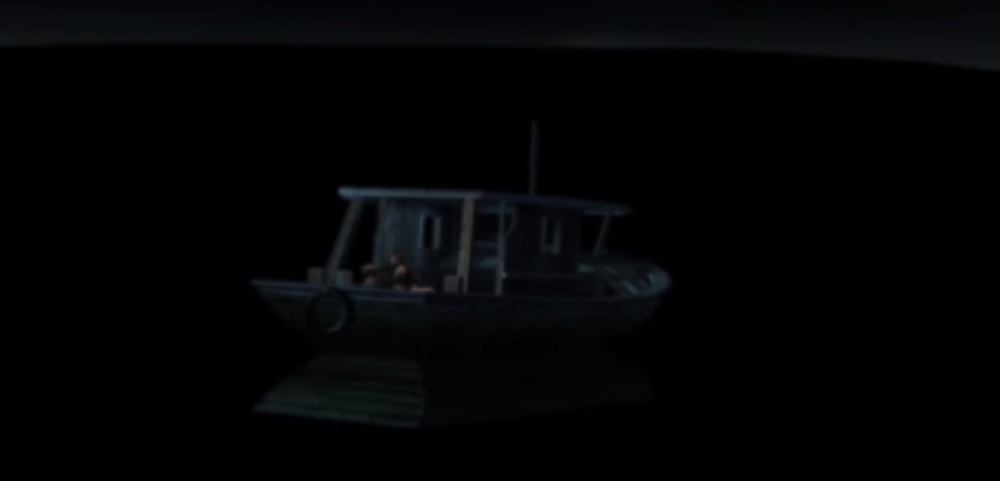There are plenty of videogames where you play quote/unquote bad guys, games like Grand Theft Auto, Saints Row, Manhunt, Prototype, Yakuza. But these games go to great pains to make their protagonists endearing, or somehow sympathetic. I’ve written before about the measures GTA IV takes to help the player feel okay about the things she and her character do. Likewise, the leading men in titles like Red Dead Redemption and The Darkness, although they’re violent and dangerous, are each striving towards some kind of objective, grander-than-themselves good. John Marston is trying to save his family, while at the same time battling the formation of a new, corrupt Federal government. Jackie Estacado is avenging his dead girlfriend, and destroying a New York mafia family in the process. True “bad guys” are mostly missing from games. Writers seem concerned that the people who play games won’t connect to characters – won’t interact with a game’s systems and objectives – if the motivation they’re given is “negative.” Saving the world, or at least, saving something, is a better vector for player engagement. It’s certainly simpler. “If you go here and do this you’ll save somebody’s life” is an easier thing to communicate than “go here and do this, because it’s what your character would do.” And in videogame writing, brevity is king. The anti-hero, rather than the true villain – the true Unreliable Narrator – reigns because he’s easier to explain.
That’s why a game like Kane and Lynch: Dead Men is so impressive, and so valuable. In a discussion about gaming’s playable villains, Lynch, the schizophrenic who murders a bank lobby full of hostages seems like the character to gravitate towards. But it’s actually Kane who stands out in Dead Men. He possesses a trait which is largely absent from videogame protagonists: selfishness. In that early bank robbery mission, when the escape van crashes and the two eponymous criminals come spilling out of the back, Kane takes one look at the driver and the safe cracker who were sat in the front seat and says “leave them.” Later, he lies to his partners in crime, claiming he’ll pay them if they come on a job to locate his kidnapped daughter. When the whole thing goes awry, and the gang is pinned down by gunfire, Kane exclaims “fuck the men,” and leaves them to die.
He’s accused throughout the game of pulling a similar trick on another job – allegedly, he abandoned a group of mercenaries during a firefight in Venezuela, and kept whatever loot they had captured all for himself. “It’s bullshit,” Kane protests, and normally in videogames, where bad guy characters and their histories are simply misunderstood, he’d be telling the truth. But not in Dead Men. Kane really did betray his colleagues and run out with the money. He is, as the other characters constantly assert, a “fucking traitor.”
But Dead Men isn’t interested, at all, in judging Kane. It neither condemns or exonerates him. If during one of the game’s many gunfights you shoot a civilian, nothing happens – no pop-up warning, no remarks from Kane, Lynch or any of the other crew-members. Conversely, at the end of Dead Men, you’re presented the choice of either boarding a helicopter with Kane’s rescued daughter, Jenny, or returning to the firefight in an attempt to rescue Shelley and Rific, two of the criminals duped into accepting the Cuba job. Typically, selecting and carrying through that second option would be a moment of absolution for Kane. It would undo his betrayal years earlier in Venezuela, give his character a traceable arc and reward the player with a Good Ending. But Shelley and Rific die anyway, Jenny gets shot during the rescue and Dead Men nevertheless ends on a blunt down note, with Lynch, Kane and his lifeless daughter floating down a darkened river in a stolen boat, towards nothing.
It’s this distinguishable lack of catharsis and pay-off – this disinterest in script-writing standards – that makes Dead Men one of the only games that is truly about bad guys, truly about violence. Nothing Kane does has any narrative sway or significance. He isn’t doing bad things in order to eventually do good ones, nor is he a whipping post for the audience – an easy villain, a hate figure. He simply is and he simply does. The clipped, uncomplicated writing in Kane and Lynch: Dead Men (we always arrive at scenes at the latest possible point, leave them as quickly as possible) prevents the game devolving into any sort of moralising. Kane is a cad and a killer, but he isn’t penalised or rewarded for that behaviour in any overt way – no matter which way he goes in the end, the results will be horribly mixed. Similarly we, as players of Dead Men, are dishonourable and murderous. Like Kane, we kill and kill and kill to get our job done, and the game steps back, and doesn’t punish or reward us for doing good or bad. Dead Men is not only the rare example of a videogame where the protagonist is truly bad – selfish, deceitful, unquestioning of himself and violently possessive of his daughter – it’s a game where the player is truly bad, also. The things we do are purely to meet Kane’s personal, ugly ends. We’re not helping someone, saving something or learning anything. We’re propelled by Kane’s conceits, and like the man himself – like the game, which never ponders, or launches into a diatribe – we don’t ask questions.
When BioShock released in 2007, it sparked designers and critics to question how videogames could unite a stoic artistic vision with the unpredictable behaviour of a player. In the same year, but to considerably less fanfare, Kane and Lynch: Dead Men showed how a videogame player, determined to commit violence en masse and without introspection, could deftly be paired and matched with her character, so long as writers had the guts to create a reprehensible protagonist. Kane and Lynch: Dead Men is an ugly little game about ugly little people – Kane and the person controlling him. Unpleasant, miserable and empty, it highlights the obscenity of bestowing violent characters with any kind of heroism.


One thought on “Keep Talking, Kane and Lynch: Dead Men”